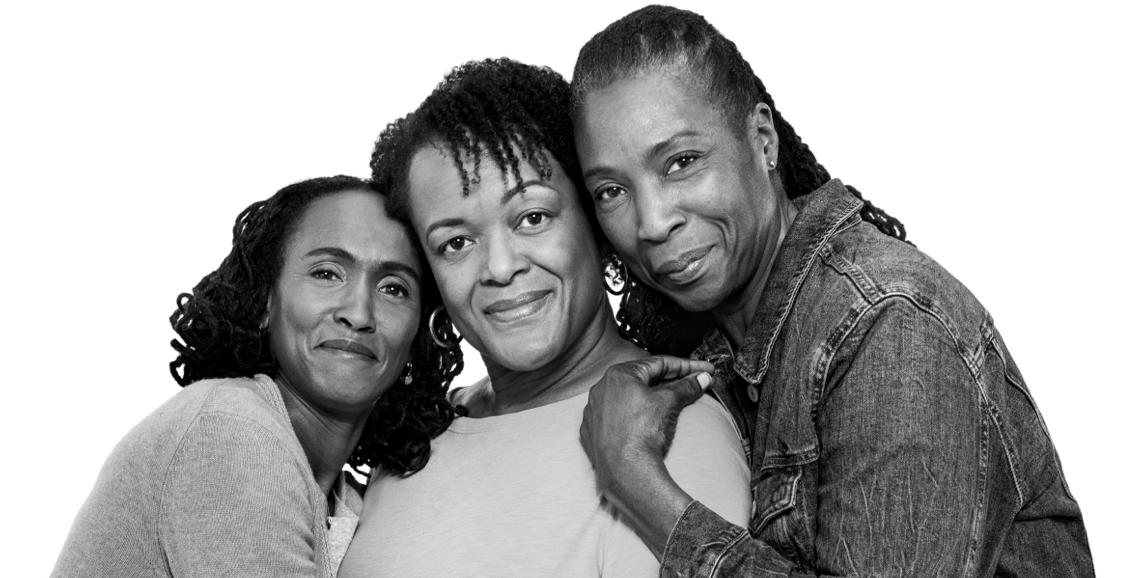Triple-negative breast cancer (TNBC)
UNDERSTANDING TREATMENT WITH KEYTRUDA
High-risk early-stage TNBC

On this page:
For people with high-risk early-stage TNBC, a complete treatment plan includes KEYTRUDA + chemotherapy before surgery and KEYTRUDA alone after surgery
A diagnosis of high-risk early-stage triple-negative breast cancer means there may be a higher chance of the cancer returning after surgery. It’s important to work with your doctors and ask questions about your treatment options, and learn whether treatment with KEYTRUDA before and after surgery is right for you.
KEYTRUDA is a breakthrough immunotherapy that is approved for use with chemotherapy before surgery, then alone after surgery, to treat high-risk early-stage triple-negative breast cancer. Keep reading to learn more about what a treatment journey for high-risk early-stage TNBC could look like.
How KEYTRUDA is used before surgery (neoadjuvant)
- KEYTRUDA is first used with chemotherapy before surgery. Treatment that comes before surgery is called “neoadjuvant.”
- A goal of treatment before surgery is to help reduce tumor size and kill cancer cells that may have spread.
- It’s important to receive all treatments with KEYTRUDA plus chemotherapy before surgery. In order to use KEYTRUDA after surgery, you need to complete treatment before your procedure as recommended by your doctor.
Surgery
- The primary goal of surgery is to remove the cancer from your body.
- Your surgeon also may remove lymph nodes in the area to determine if the cancer has spread.
- After surgery, follow the treatment plan you and your doctor created, and continue talking to your care team.
How KEYTRUDA is used after surgery (adjuvant)
- KEYTRUDA is used alone after surgery. Treatment after surgery is called “adjuvant.”
- A goal of treatment after surgery is to help keep cancer from coming back.
- Continue treatment with KEYTRUDA alone after surgery as recommended by your doctor.
Talk to an oncologist before surgery to see if KEYTRUDA is right for you
Having a conversation with an oncologist can help you understand whether your treatment plan should include treatment before and after surgery.
Here are some questions that may be helpful during your next appointment:
- Is there a chance my cancer may return after surgery?
- What are my treatment options if I’m at risk of my cancer returning?
- Is treatment before surgery right for me?
- Is KEYTRUDA an option?
- How soon should I start treatment?
- What are the potential risks and benefits of KEYTRUDA?
Asking care team members for support
When undergoing cancer treatment, you’re able to lean on a dedicated care team made up of many experts—oncologists, surgeons, radiologists, oncology nurses, patient navigators, and other health care professionals––who work together to help you along the way. They are there to answer your questions and offer guidance during your treatment journey.
Support can also come from your family, friends, or community. Having people to talk to or who can help with daily needs can relieve some stress or worry when undergoing treatment.
- Oncologist: A doctor who has special training in diagnosing and treating cancer. Your oncologist will oversee your care and answer questions about your diagnosis and treatment plan.
- Surgeon: A doctor who is trained to perform surgical operations. A surgical oncologist specializes in performing surgery to treat cancer. Your surgeon can answer questions about your surgery to remove cancer, how to prepare for surgery, what to expect after undergoing surgery, and explain any side effects of surgery.
- Oncology Nurse: A nurse who specializes in treating and caring for people with cancer. Your oncology nurse helps coordinate care with other members of the care team, checks your physical condition, and helps you manage side effects of treatment.
- Patient Navigator: A professional who helps patients before, during, and after treatment, to help them understand and complete treatment. They can help connect you to support services and other health care professionals, and schedule appointments or tests.
- Radiation Oncologist: A doctor who specializes in using radiation to treat cancer. A radiation oncologist can help you determine if you’re a candidate for radiation therapy and what to expect when undergoing radiation treatment.
- Infusion Nurse: A nurse who administers medication and fluids through an intravenous (IV) line, central line, or venous access port.
Learn more about engaging with your care team
Download this brochure to learn more about a cancer care team and how they can help:
Have you or someone you care about been diagnosed recently with high-risk early-stage TNBC?
This patient brochure can be saved or printed. It explains what KEYTRUDA is and how it works, contains questions to ask your care team before and after surgery, and has additional information to help you navigate your treatment plan including KEYTRUDA for high-risk early-stage TNBC.

Patient support throughout your treatment
Patients who have been prescribed KEYTRUDA for an approved indication can access additional support from KEY+YOU, the patient support program for KEYTRUDA. KEY+YOU helps eligible patients by offering educational resources and support information throughout treatment.
Call 85-KEYTRUDA (855-398-7832)